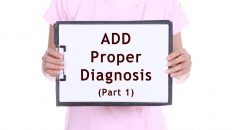By Jerry Morris, PsyD, MsPharm, MBA
MB (Marc Braman, MD, MPH):
Welcome Dr. Morris, thank you again for joining us.
JM (Jerry Morris, PsyD, MsPharm, MBA):
Glad to be here, Marc.
MB:
So, we want to talk a little bit about stress and give people an orientation to what it is and how it works, and understanding that the science is really showing that stress is a much bigger problem than we have given it credit for, and it’s really not just a symptom that’s annoying, but it’s a whole set of physiology and consequences and effects that have huge implications for our physical health, as well as our mental health. Could you tell us a little bit more about that, and maybe how that works?
JM:
Yes, Marc, I’m very glad that you’re appreciating that stress is both a positive and negative phenomena of pushing the system out of the balance it is in. Now, when the system is in a negative balance, then we should get negative feedback from our perception, our afferent nervous system, our psychological system, and that’s not necessarily a bad thing or an enemy. There are times when it’s a skill to block out those signals. If you’re anxious at doing something at work but you must press through the anxiety and you have some skill base, if your arthritis is bothering you but yet you’re down 30-0 in your tennis match, you’ve got to be able to turn off signals, and block them and not process them. However, if you’re blocking out those kind of stress-related signals too often, and you see them as totally negative, then you do not have the signals you need to scan your strategies and choices and to use those negative signals as a motivation for change.
MB:
So stress can be very helpful, and just to clarify, so the afferent system meaning the signals you’re getting from your body, the sensations and whatnot, and looking at it physiologically, how we connect to our world, we’re really wired with two systems that are hardwired to do all kinds of things automatically for us we don’t have to think about. We have fancy medical names about the autonomic nervous system, but we’re either in stress mode to survive, or we’re in heal-repair mode, or some combination or balance of those two. So, if these are constantly active and sending out signals, isn’t this kind of like a built-in pharmacy?
JM:
Yes, as a matter of fact, that ability to see where we’re at in terms of these signals, positive or negative, the negative being stress oriented signals, and to adapt, or to keep something going where we’re getting positive signals, is what we call adaptation. Now, all of those, if you realize that we’re always managing our body, we’re managing our respiratory system, we’re managing our stress and endocrine system and hormonal system, we’re managing our brain physiology, and we’re managing our mind, which is even bigger and has to do with relationships and social systems. It’s a complex job to manage these systems and to keep it in what I call the optimal stress zone. That’s a zone where we have enough stress to always be doing, scanning for more adaptive decisions and strategies, but we don’t have such overwhelming stress where we’re paralyzed or we can’t function in finding more adaptive strategies.
MB:
Right, and so I think many of us would probably… There’s a medical parlance and then there’s what people would use more commonly, so I think in common usage, stress as a term is the negative effects, the negative stressors if you will, and the other things are challenges or stimulation kinds of things. The science is showing there’s a lot of connection to specific diseases, even the really common diseases. What conditions are affected significantly by stress?
Any textbook on stress and its physiology





